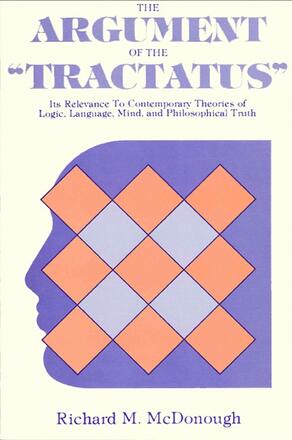Acknowledgments
Introduction: The Program
Tautologies and the Logical Structure of Language and the World
A Sketch of Wittgenstein's Strategy
The Historical Objections to Wittgenstein's Program
A Conceptual Objection to Wittgenstein's Program
The Scope of the Present Interpretation
The Status of the Present Interpretation
Part I. Negation, Negative Facts and Wittgenstein’s ‘Fundamental Idea’
1. Russell's Distinction between Negative and Molecular Propositions
2. An Account of the Notion of a Negative Fact
3. Wittgenstein and the Dualism of Positive and Negative Facts
4. Negative Facts and the Tractatus
5. Wittgenstein’s ‘Fundamental Idea’
Part II. The Logical Propositions
1. The Unique Status of the Propositions of Logic
2. Russell's Account of the Logical Propositions
3. What Tautologies Express
4. How Tautologies Express
5. Sign and Symbol
6. The Autonomy of Logic
7. A Comparison of Wittgenstein and Russell
Part III. The Sole Logical Constant or General Propositional Form
1. Wittgenstein's 'Fundamental Principle'
2. The Sole Logical Constant
3. The Contingency of Genuine Propositions
4. The Structure of the Genuine Propositional Symbol
5. Tautology and Contradiction as Cases of the Disintegration" of the Combination of Signs
6. The Application of the Tautologies in Inference
Part IV. Logical Form and the Form of Reality
1. The Subject Matter of Propositions
2. The Proxy
3. Pictorial Form
4. The Propositional Bond
5. Substance
6. The Symbolic Representation of the Substantiality of the World
7. Interim Review
Part V. The Perceptible Propositional Signs and Sign-Systems
1. The Surface and the Underlying Structure of Language
a. Logic and the Underlying Structure of Language
b. Wittgenstein's Alternative Account of Vagueness
2. The Propositional Sign of Everyday Language
3. The Ideal Propositional Sign and Sign-System
4. The Perceptible "Image of the Truth"
Part VI. The Imperceptible Part of the Propositional Symbol: The Thought
1. Russell's 1919 Account of the Proposition
a. Russell's 'Mental' Propositions and Brentano's Notion of the Mental
b. Russell's Account of the Mental Dimension of the Meaning Locus
2. The Notion of the Meaning Locus and the Tractatus
a. The Notion of the Meaning Locus and the Text of the Tractatus
b. The Notion of the Meaning Locus and the Argument of the Tractatus
c. The Concept of the Meaning Locus and the Awareness of Meanings
d. Recognition of the Significance of these Notions in Contemporary Philosophy
e. The Logical Status of the Notion of the Mental
f. Summary
3. Contemporary Psycholinguistic Versions of the View that the Propositional Symbol Involves a Meaning Locus and Interpretation Terminus
4. The State of the Contemporary Theory of Meaning
Part VII. The Nature of a Philosophical System and Philosophical Propositions
1. The Self-Contained Philosophical System
2. The Presuppositionless Starting Point for Philosophy
a. The Sense in which Wittgenstein's Philosophical System Does Not Have a Presuppositionless Foundation
b. The Sense in which Wittgenstein's Philosophical System Does have a Presuppositionless Foundation
c. The System of Philosophical Knowledge and the System of Philosophical Truth
3. The Systematic Nature of Philosophical Truth: The Truth Locus for Philosophical Truth
4. The Holistic Nature of Wittgenstein's Philosophical System
5. A Comparison of the Notion of a Philosophical System in the Tractatus and in German Idealism
6. The "Transcendental" Nature of Logic
7. Throwing Away the Ladder
Part VIII. The Theory of Communication: The Sayable and the Unsayable
1. The Theory of Communication for Genuine Propositions
a. Expressing a Thought in Words
b. An Account of Communication within the Limits of Natural Science
2. The Significance of Philosophical Propositions
3. Wittgenstein's Doctrine of Silence
Summary of the Central Views of the Tractatus
Concluding Remarks
Notes
Bibliography
Index
